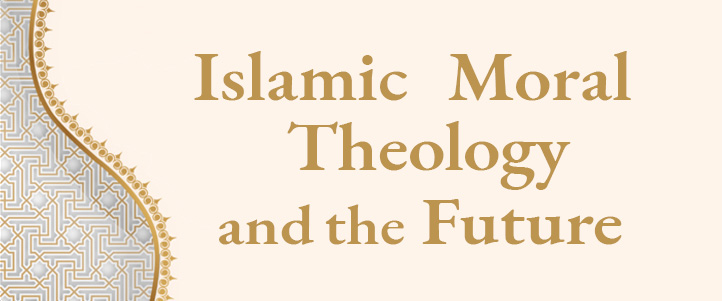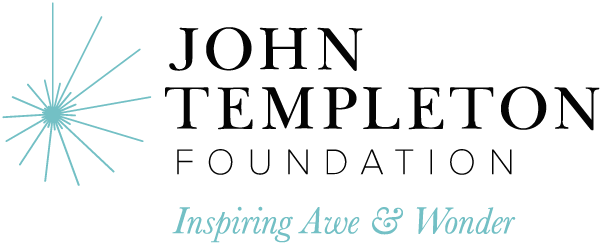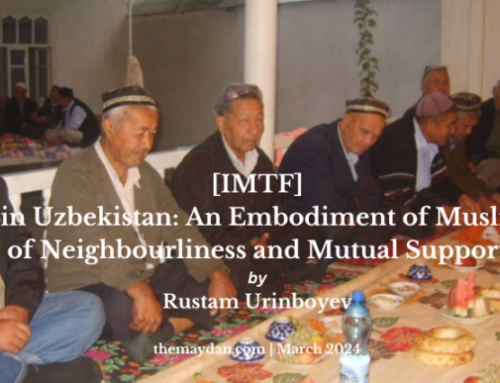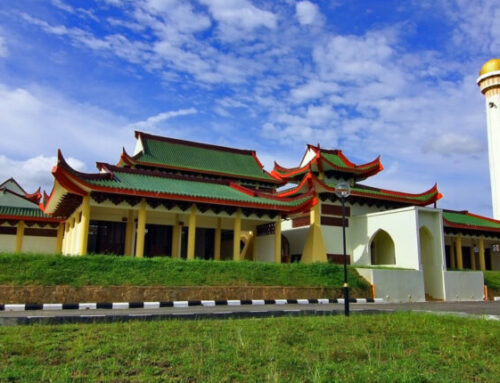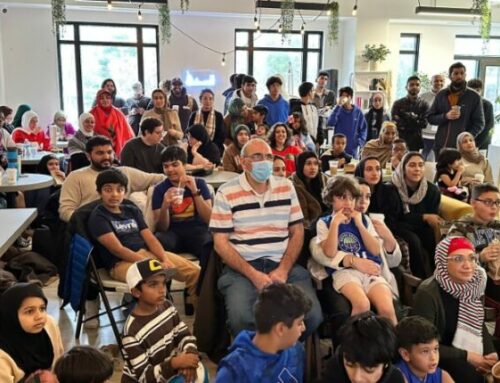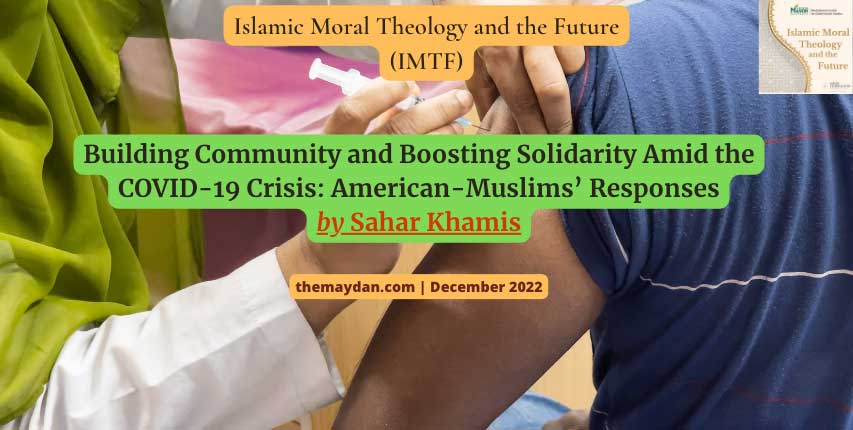
Building Community and Boosting Solidarity Amid the COVID-19 Crisis: American-Muslims’ Responses
When the COVID-19 pandemic swept the world in 2020, it caused a plethora of unexpected effects which impacted various aspects of life, including education, employment, travel, health, the economy, and even media consumption, information-seeking, and information-sharing. It also widened the gaps and magnified the disparities between the haves and have-nots, whether between one country and another or even inside the same country. It became obvious that the less developed regions in the world suffered greater problems than others and that the less fortunate inside each country also suffered the most, as their existing socioeconomic challenges were dramatically exacerbated amid the global health crisis. These new trends had particularly dangerous implications for the world’s most vulnerable groups, namely women, the poor, rural communities, migrants, non-traditional workers, refugees, and displaced persons, to mention only some.
However, it is important to bear in mind that even in the most developed countries in the world, such as the United States, there were significant impacts from the COVID-19 pandemic, which necessitated intervention, assistance, solidarity, collaboration, and community building. This provided unprecedented opportunities for various communities to step up their humanitarian relief efforts and to extend their support to their fellow Americans. One of these communities was the American Muslim community. ”
[The pandemic] provided unprecedented opportunities for various communities to step up their humanitarian relief efforts and to extend their support to their fellow Americans. One of these communities was the American Muslim community.
This essay provides a brief overview of some of the philanthropic efforts and activities made by diverse groups of American Muslims in various domains during the COVID-19 pandemic crisis, and examines its many social and economic implications. Muslim social and philanthropic contributions during the pandemic challenge the negative stereotypes about Islam and Muslims, and highlighting these efforts may counter the rising tide of Islamophobia. Examining the complexities of these interrelated issues and giving examples of American Muslim engagement in philanthropic efforts amid the COVID-19 pandemic, both in their own communities and beyond, demonstrates how the boundaries of Islamic philanthropy and Muslim communal ethics have been both redefined and expanded.
An Overview of American-Muslim Responses Amid COVID-19
The American-Muslim community has been one of the most active philanthropic communities amid the COVID-19 crisis and its aftermath in a number of meaningful and tangible ways. The ISPU (Institute for Social Policy and Understanding)’s 2020 study, “Community in the Time of Corona: Documenting the American Muslim Response to the Covid-19 Crisis,” reveals how the American Muslim community provided medical support, through medical clinics, doctors, and nurses all serving as brave first responders amid the pandemic, in addition to helping those in need maintain food security and receive all the needed supplies. These efforts were not just confined to helping other Muslims, rather they extended far beyond the Muslim community to help others from different backgrounds and their local communities more broadly. Another important contribution of the American Muslim community amid the pandemic has been disseminating accurate medical information. This was especially important in light of the increasing wave of distrust towards science, which was exacerbated during the pandemic. To counter this, the American Muslim community made sincere efforts to debunk misinformation, fight disinformation, and spread science-based medical information, while also providing vital supplies across all fifty states and across the boundaries of faith, race, culture, and ethnicity.
…the American Muslim community made sincere efforts to debunk misinformation, fight disinformation, and spread science-based medical information, while also providing vital supplies across all fifty states and across the boundaries of faith, race, culture, and ethnicity.
This ISPU study cited only a few examples that do not do full justice to the magnitude of the countrywide efforts and philanthropic contributions of the American Muslim community amid the pandemic. For instance, members of IMANA (Islamic Medical Association of North America) donated $1.5 million to the US Virgin Islands’ COVID-19 response efforts, as well as medical expertise and personal protective equipment (PPE). Similarly, the American Muslim Community Foundation created a fund for donations to nonprofit organizations and was able to successfully raise $350,000. Additionally, in response to the increase in mental health challenges during the pandemic, the Family & Youth Institute created and shared mental health resources to support not only members of the American Muslim community, but anyone who needed such resources, across all communities. To combat food insecurity, ICNA (Islamic Circle of North America) Relief provided half a million people from different backgrounds with massive amounts of food, in addition to the necessary hygiene products. These are just a few examples among many.
These examples clearly illustrate how members of the Muslim community in the United States, and elsewhere rose up to the occasion as role models of Muslim giving, sharing, and caring across all communities and beyond all demographic boundaries. This reflects how Muslim communal ethics could be best exercised and illustrated in a contemporary context and during times of change and crisis.
Redefining and Expanding Islamic Philanthropy: Capacity Building and Global Outreach
There are Muslims of various ethnicities and cultures living across the globe and practicing different variations of the Muslim faith. Consequently, there are many different ways that philanthropy is practiced, and defined, by Muslims. The most general forms of almsgiving include “helping the poor, sick, elderly, and homeless” as well as dedicating time to mosques and other organizations (Siddiqui 2010, 39).
Such practices have their roots in the Islamic tradition of zakat, the practice of almsgiving that is viewed as a religious requirement for Muslims (Singer 2008, 34), and which is one of the five pillars of Islam. Within the understanding of philanthropy in the context of Islam, there is another term: sadaqa. While sadaqa and zakat can both be understood as referring to almsgiving, sadaqa is broader and more comprehensive, since it is often defined as an institutional practice of charity rather than as a tax, which is how zakat is systemically categorized (Hassan, 2007, 25). Charity (sadaqa) is distinct from other forms of giving in that it is an empathetic and fast response to a dire situation (Philanthor, 2018). The Muslim responses to the COVID-19 pandemic constitute one powerful example of this. Sadaqa is also further defined to include emotional and non-material acts of kindness to others, reflecting Muslims’ strong emotional and spiritual commitment to giving (Siddiqui, 2010, 31). Thus, sadaqa is a much broader understanding of giving and focuses more on the intentionality and appropriateness of the almsgiving act and the emotional motivations behind it, compared to zakat, which is understood as a specific, mandated religious practice.
However, charity is more short-term in nature than philanthropy and is based more upon one’s emotions, while philanthropy is more intentional, strategic, long-term, structured, and planned (Siddiqui, 2010). It is for this reason that members of the American Muslim community are increasingly invested in redefining, expanding, and strategizing their acts of charity and giving to transform them into philanthropic acts.
One way to do so, according to Tayyab Yunus, a philanthropist, entrepreneur, and founder and CEO of “Intuitive Solutions,” is to change the definition and perception of philanthropy from narrow acts of charity to broader acts of capacity building. “When I founded this global company my aim was to invest in training young people to become the leaders of the future and to provide them with all the needed resources to succeed and all the support networks they can benefit from, moving forward. This is the true meaning of philanthropy from my perspective” (Yunus, 2020).
Another important aspect in the redefinition and expansion of Muslim philanthropy is going beyond the local to reach the global. This global outreach, which also expanded during the pandemic, has been described by some American Muslims, including Osman Dulgeroglu, the executive director of “Embrace Relief,” as an absolute necessity in an age of globalization. “It is essential to expand all forms of charity and acts of philanthropy to reach as many people as possible in all corners of the world. This became even more crucial amid the COVID-19 pandemic, with all the hardships which came along with it and the increasing demand for help and support globally” (Dulgeroglu, 2020). Similar views were expressed by a number of interviewees from Islamic Relief USA, one of the most active and internationally-recognized Muslim charity organizations, which receives support from both Muslims and non-Muslims alike, thanks to its outstanding reputation and wide global reach.
One of the most important factors that aided this acceleration of global Muslim philanthropy amid the pandemic was the phenomenon of digitalization, or the reliance on new, digitally-based communication tools.
One of the most important factors that aided this acceleration of global Muslim philanthropy amid the pandemic was the phenomenon of digitalization, or the reliance on new, digitally-based communication tools. A number of American Muslim interviewees hailed the more modern ways of giving that were made possible through internet-based practices, which facilitated digital almsgiving across boundaries of culture, region, religion, and geography. Some of them mentioned new applications such as “GoFundMe,” for example, which facilitates giving a helping hand internationally and reaching out to people in need throughout the world via social media.
They also highlighted the significance of these parallel processes of digitalization and global outreach in countering the spread of misinformation and disinformation about the pandemic internationally, as well as ensuring that the right information reaches the right people at the right time, which they perceived as another essential component of their Muslim communal ethics.
This is especially important since the overwhelming explosion of information which accompanied the COVID-19 pandemic resulted in some cases in an information overload, which came to be known as an “infodemic,” a term coined by the World Health Organization (WHO) to refer to the wave of misinformation, disinformation, and rumors that accompanied the spread of COVID-19. Another parallel, yet contradictory, threat could be referred to as an “info-deficiency,” meaning the shortage of important, basic information amid this pandemic. This phenomenon posed especially dire consequences for the most vulnerable and marginalized groups around the world, as it intersects with underlying systemic divides and existing inequalities. This necessitates a special focus on how and why the “digital divide,” or the gap between the technological haves and have-nots, has been a major contributing factor to accelerating inequalities, including socio-economic disparities, through impacting access to information, training, and employment. It is certainly important to explore the best solutions for closing these gaps amid, and beyond, the COVID-19 pandemic, as a number of Muslim American interviewees rightly mentioned when describing their Muslim communal ethics and their philanthropic contributions and commitments, both nationally and internationally,
Gendered Responses Amid the Pandemic: Muslim Women Stepping Up
The complex struggles faced by women, including multiple layers of invisibility, marginalization, inequality, discrimination, and violence significantly worsened during the COVID-19 pandemic. Women have traditionally, and historically, been known as the caretakers of their respective families and wider communities. While this places additional burdens on their already limited socio-economic resources and adds more constraints on their physical, mental, and emotional wellbeing, it also provides them with unprecedented opportunities to step up to positions of prominence, visibility, and even leadership amid crisis, which counters their traditional marginalization and invisibility.
This is especially true in the case of Muslim women, who have been negatively and stereotypically misperceived as helpless, powerless, weak, and oppressed, mainly due to international media’s skewed portrayals and misrepresentations, which are oftentimes caused by Islamophobia, while simultaneously contributing to more Islamophobic tendencies. While the pandemic placed additional burdens on the shoulders of women all over the world, contributing to their already marginalized and underprivileged positions, it also opened the doors for a unique moment of visibility for them through service and community leadership in a number of meaningful and powerful ways. American Muslim women were no exception. American Muslim women played a number of vital roles in the midst of the COVID-19 pandemic, shattering these negative media portrayals and challenging false stereotypes.
While the pandemic placed additional burdens on the shoulders of women all over the world, contributing to their already marginalized and underprivileged positions, it also opened the doors for a unique moment of visibility for them through service and community leadership in a number of meaningful and powerful ways. American Muslim women were no exception.
Some of my interviewees are a living example. For example, Mona Negm, the founder and executive director of AMSS (American Muslim Senior Society) and an award-winning community leader in Montgomery County, Maryland, was able to offer a wide range of services to one of the most vulnerable groups, namely Muslim seniors, especially those who happen to be isolated and/or marginalized during the pandemic. These broad, umbrella services included medical checkups, healthcare services, and medical supplies, such as masks and sanitizers, in addition to mental health monitoring, and even hot halal meals, as part of an initiative known as “Halal Meals on Wheels.”
“Our main aim at AMSS was to provide all those in need, especially isolated and marginalized seniors, with all the support they need amid the stressful days of the pandemic. Our wraparound services are varied and diverse, just like our clients, and they are meant to address their mental, physical, emotional, and psychological wellbeing in the most comprehensive way. Most of our volunteers are Muslim women who decided to courageously step up to serve the communities in dire need” (Negm, 2020).
Nisa Muhammad, a PhD candidate in the African Studies Department at Howard University and the Assistant Dean for Religious Life at Howard University, commented on the important role played by Black American Muslim women to support the most vulnerable in their community.
“COVID-19 revealed health care disparities with Black Americans experiencing the highest COVID-19 mortality rates nationwide. Black Muslims are a subset of this population, and they comprise 20-25% of the overall Muslim population in the United States. In the early days of the pandemic, little attention was placed on the risks to Black Muslims. Muslim Wellness Foundation partnered with the Muslim Anti-Racism Collaborative to launch the National Black Muslim COVID Coalition on March 23, 2020. Both of those organizations are led by Black Muslim women. They brought their skills and talents to these new initiatives to provide the necessary advocacy, research, and resources which are most needed for the Black Muslim community” (Muhammad, 2020).
She also remarked that:
“The coalition’s other projects include the publication of the Black COVID Survey and report, and the establishment of the ‘Wisdom of the Elders’ project to address the devastating impact of social isolation, loneliness, and disconnection from the community amid the pandemic. This is an intergenerational storytelling and documenting project. They also organized the American Muslim COVID Loss Survey to gather information about deaths in American Muslim communities as a result of the COVID-19 pandemic. All of these projects are also led by Black Muslim women” (Muhammad, 2020).
All interviewees agreed that the significant and prominent roles played by American Muslim women across all racial, demographic, and ethnic groups was exemplary not just in serving the communities in dire need during the pandemic, but, most importantly, in defying the false narratives, skewed misrepresentations, and negative stereotypes which cloud Muslim women’s true identities and mask their lived realities.
Concluding Remarks: Demonstrating Muslim Communal Ethics, Changing Perceptions
One of the important factors which creates similarity across the Muslim experience in the United States is the experience of Islamophobia, which is commonly defined as the negative treatment of Muslims stemming from an excessive fear of Islam. This is not a uniquely American phenomenon, as all countries in which Muslim populations constitute a minority experience some sort of marginalization, if not outright discrimination. It has, however, been significantly on the rise in the United States, especially after the events of September 11th, 2001.
While American Muslims did resort to social media campaigns and other forms of digital communication to counter dangerous Islamophobia, it is safe to say that actions always speak louder than words. Therefore, the impressive acts of charity and philanthropy which American Muslims, and Muslim elsewhere, are initiating and contributing to could be regarded, in fact, as the best and most effective response to counter Islamophobia.
These efforts have the possibility of improving the image and representation of Muslims, moving forward. However, this is not something which can be achieved overnight. It certainly takes a village. In the case of Muslims, it requires the solidarity, commitment, and dedication of a community which puts its faith into action for the service of humanity and the betterment of others, while striving to dispel the skewed stereotypes and negative misrepresentations of Islam and Muslims in mainstream media, social media, and political discourse simultaneously.
Dr. Sahar Khamis is an Associate Professor in the Department of Communication at the University of Maryland, College Park. She is an expert on Arab and Muslim media and the former Head of the Mass Communication Department in Qatar University. Dr. Khamis holds a Ph.D. in Mass Media and Cultural Studies from the University of Manchester in England. She is a former Mellon Islamic Studies Initiative Visiting Professor at the University of Chicago. She is the co-author of the books Islam Dot Com: Contemporary Islamic Discourses in Cyberspace (Palgrave Macmillan, 2009) and Egyptian Revolution 2.0: Political Blogging, Civic Engagement and Citizen Journalism (Palgrave Macmillan, 2013), and the co-editor of the book Arab Women’s Activism and Socio-Political Transformation: Unfinished Gendered Revolutions (Palgrave Macmillan, 2018). Dr. Khamis is an award-winning academic, a media host and an international media commentator and analyst, a public speaker, and a former human rights commissioner in the Human Rights Commission in Montgomery County, Maryland.
References
Dulgeroglu, Osman. (2020). Zoom interview on September 28, 2020.
Hassan, Riaz. (2007). “Giving and Gaining: Philanthropy and Social Justice in Muslim Societies.” Lahore Journal of Policy Studies, vol. 1, no. 1, June 2007,
Muhammad, Nisa. (2020). Email interview on April 30, 2020.
Negm, Mona. (2020). Zoom interview on April 18, 2020.
Philanthor (2018). “The Difference between Charity and Philanthropy.” Medium, June 29, 2018.
https://medium.com/@Philanthor/the-difference-between-charity-and-philanthropy-fe29e327acac
Siddiqui, Shariq (2010). “Giving in the Way of God: Muslim Philanthropy in the US.” In Religious Giving: For Love of God, edited by David Smith. Indiana: Indiana University Press, 2010, pp. 28–48.
Singer, Amy. (2008). Charity in Islamic Societies. Cambridge: Cambridge University Press.
Yunus, Tayyab (2020). Zoom interview on October 8, 2020.

